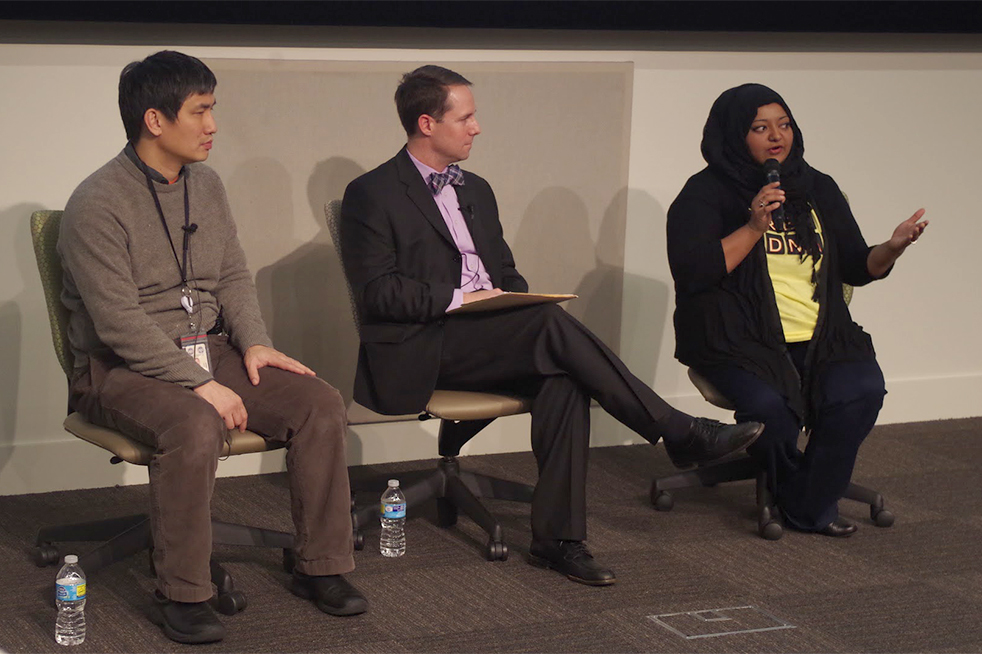On Feb. 9, Rabia Chaudry, the lawyer involved in the influential Serial case, visited Tech to give students, faculty and visitors a general overview and an update on the current case’s status. Hosted by the Muslim Student Association, Sameera Omar, president of the MSA, felt the event was much needed to showcase the importance of a “fair and just trial” while helping students acknowledge their “duty to speak out against injustice and seek to understand others.” With tickets selling out in less than a week and over 100 people on the event’s waiting list, the Serial update event proved to be a hit among the Tech and Atlanta community.
Holding the current No. 1 spot on iTunes, Serial is a spinoff of the popular NPR podcast This American Life. With the producer of the podcast, Sarah Koeng, dubbing Serial as “about the basics: love and death and justice and truth,” the podcast seeks to investigate the death of Hae Min Lee, an 18-year-old girl.
With her body discovered on Feb. 9, 1999, Lee’s death was immediately ruled a homicide. Consequently, her ex-boyfriend, Adnan Masud Syed, was sentenced to life for her murder even with Syed declaring himself innocent. The podcast, ultimately, hopes to shed light on the murder case while questioning the legitimacy’s of Adnan’s trial.
The event started with a moderator-led session followed by a student question and answer portion. Immediately, Chaudry addressed the gathered crowd with the ultimate question: “who here has listened to the Serial podcast?” As expected, every person in the room raised their hands with the exception of two students whom she jokingly asked to be “escorted out” of the talk.
Since most of the attendees were avid listeners of Serial, Chaudry instantly jumped into the case’s current status. Possibly stemming from the podcast’s success, Adnan was recently granted a chance at filing an appeal, so he may be given a chance at a post-conviction hearing. The appeal, however, “can be denied if the court finds [the Defense Attorney, Gutierrez,] was effective with the case.”
She also addressed a variety of issues touched upon in the podcast. She felt the “prosecution [was] relying on stereotypes of Muslim men.” The prosecution felt Adnan believed that “in [his] culture, it’s okay to kill a girl who besmirched [his] honor.” An uncommon question, she addressed the prejudice associated with marijuana use. Even though Adnan smoked frequently during his high school years, Chaudry still believed the stigma associated with marijuana was not present throughout the trial.
Chaudry also discussed the sociology of innocence. According to Chaudry, the innocent before proven guilty “presumption is not reality.” Citing Adnan as a prime example, she believed that the justice system did “not treat [Adnan] like an innocent person,” as he was jailed almost a year before trial. She also feels “if Gutierrez had done her job ethically, then [Adnan] would not have been convicted.”
